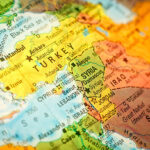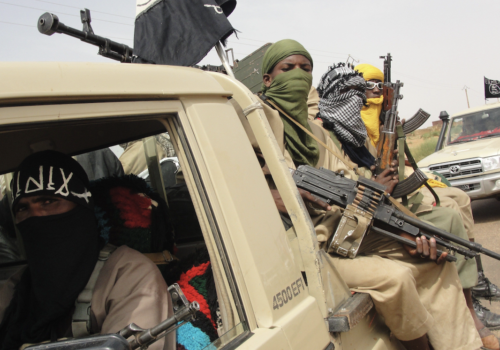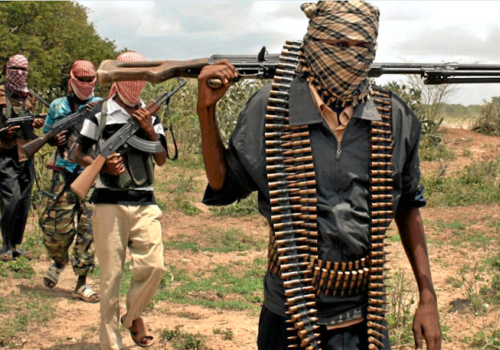When ISIS lost its central areas in 2019, it was not only defeated militarily, but also the organisation’s large propaganda machine lost its power. ISIS’s military defeat and its lost dominance caused its powerful media outlets to go underground like the last nuclei of the organisation and suspend their broadcasts until they reorganised.
Despite the collapse of the organisation based in Syria and Iraq, for a long time, the local and global coalition against ISIS focused on the organisation’s presence between Damascus and Baghdad, which provided ISIS with an opportunity to establish new branches in crisis areas elsewhere in the world. ISIS, as a frontal organisation as well as an intelligence organisation, seized this opportunity and, while it collapsed in the Middle East, it also rose on other fronts. Unable to achieve the desired power in Southeast Asia, which it considered as a virgin area, ISIS preferred to focus on Africa and Afghanistan. The authority vacuum in Africa and the Taliban’s control of Afghanistan in 2021 was an important opportunity for the organisation to rise again. In contrast to previous years, the Khorasan branch of ISIS has gained strength in every sense since then. The Afghanistan branch’s propaganda machine, presumed to act as a reorganised and localised section of the organisation, developed simultaneously with the military branch of the organisation and the “Voice of Khorasan” magazine started its publication life.
The difficulties and technical inadequacies experienced by the Taliban cadres, who had just seized power in Afghanistan, during the reconstruction of the state created the necessary conditions for ISIS to gain room for manoeuvre. Not only in physical terms but also in terms of the media, which is actually the most important power of the organisation.
For ISIS, “jihad” meant a generalised political field through the media, as the sympathisers, who constitute the outer ring of the organisation as a global movement, provided functions such as creating an echo chamber and providing human resources for the organisation in terms of propaganda, as well as repeating outward messages. For this reason, the organisation not only interprets “jihad” as going to certain geographies to fight but also expects and encourages its supporters who cannot do so to wage “media jihad”.
In order to resurrect its ideological perspective, the organisation published a magazine through its Khorasan branch in February/March 2023, issue 23, in which it talked about the characteristics of propaganda and psychological warfare and why it is necessary, and called on each individual to be a part of it. The issue in which this call was made also included Turkey, which caused the most damage to ISIS with the Euphrates Shield Operation in 2016, with content that indicates that ISIS has expanded its definition of ideological enemies.
Turkey on the agenda of ISIS Khorasan
ISIS publications in previous years, especially during Turkey’s Operation Euphrates Shield against ISIS and YPG in Syria, criticised President Recep Tayyip Erdoğan and Saudi Arabia’s King Salman al-Saud for their relations with Western leaders through the “taghut” discourse.
While the House of Saud’s control of Mecca and Medina and the imprisonment of some of the living pioneers of Salafism in Saudi Arabia enabled ISIS to criticise Riyadh directly, the war with Turkey was more than enough to target Ankara. On the other hand, the fact that ISIS had supporters in both countries made it necessary for ISIS to target these two countries, which it was already actively fighting against.
Years later, ISIS targeted Turkey again through the media team of its affiliated Khorasan branch, which is not defined as its central media. On the cover of the latest magazine, Saudi Arabia’s crown prince Mohammed b. Salman and Mustafa Kemal Ataturk were paired together and the prince was labelled “Neo-Reformer or Ataturk of al-Salul”. The circles known for their opposition to the House of Saud use the term “al-Salul” for the family. The reason for this is that it refers to Abdullah b. Ubay b. Salul is one of the leading names of the hypocrites (false believers/munafiqun) who lived during the time of the Prophet Muhammad and is known for his opposition to him. This was not only an ideological opposition to both the Saudi dynasty and Turkey as its founding leader but also defined a suitable ground for the organisation’s takfir line through Abdullah b. Ubay b. Salul.
ISIS’s choice of this name, the abolition of the Caliphate in the Ottoman Empire, Mohammed b. Salman’s initiation of the secularisation period in Saudi Arabia, and the relations established with Western states have led the organisation to liken Turkey and Saudi Arabia again, and in particular to almost unite the two leaders who have had a significant impact on the course of both countries with an analogy.
Starting from the 34th page of the magazine, this analogy starts with current foreign policy, giving examples from Islamic history, stating that Mohammed b. Salman’s famous project Neom is not in Arabic but in Greek, calling it “the desert version of Las Vegas” and “the Arab version of the infidel European Renaissance”, and through the “One World Order”, they finally express that what is being done is preparing the coming of the Dajjal. Against this, they state the coming of the Mahdi, who will fight against the Dajjal, together with the rise of the Khilafah.
In this issue, ISIS Khorasan also deals with today’s Turkey. There are a few points to be mentioned here. In fact, the magazine targets President Recep Tayyip Erdoğan from the 3rd page. It calls on the Turkish people and lists as its author a man with the name “Abu Muhammad al-Itali”, allegedly of Italian origin.
In this issue of the magazine, they deal with different issues related to Turkey. However, it evaluates them through election discourses.
The first one is on the LGBT issue. LGBT associations in Turkey organise the ‘Pride March’ between 19–25 June. It is seen that ISIS, knowing that the marches in Turkey are close to these dates, has addressed this issue first. Describing LGBT supporters in Turkey as “progressive infidels”, ISIS sees the criticism of LGBT members and supporters against President Erdoğan as a mere role-playing game. For ISIS, the power-opposition struggle in Turkey is nothing but a mise-en-scene. After all, the organisation declares that it does not believe that President Erdoğan is anti-LGBT.
Another point is Ankara’s close relations with Azerbaijan. With the support provided by Turkey during the Karabakh War, the allegations that Syrian opposition groups were included in this war, and the describe of President Ilham Aliyev as a “Rafizi” due to his being a member of the Shiite sect, ISIS establishes an opposing attitude through general descriptions. However, what should be read between the lines here is that the organisation follows Turkish foreign policy very closely.
The next issue is actually the most interesting one; the appointment of Hakan Fidan, Head of the National Intelligence Organisation (MIT), to the Ministry of Foreign Affairs and Hafize Gaye Erkan to the Central Bank Presidency.
On page 7 of the magazine, ISIS shares Hakan Fidan’s photograph and describes itself as a “loyal Kurd”. And it puts forward its own projection for what might happen in foreign policy under Minister Fidan. On the issue of Hafize Gaye Erkan, the head of the Central Bank of Turkey, ISIS emphasises the fact that she worked at Goldman Sachs investment bank without naming Hafize Gaye Erkan.
ISIS’s inclusion of Hakan Fidan is most likely due to a reason related to the organisation itself. This is because Hakan Fidan, as the Head of the National Intelligence Organisation (MIT), fought against ISIS both in Syria and Iraq and in Turkey during the emergence and collapse of the organisation. The publication of a large-sized photograph of Fidan shows that the organisation has a special enmity against him
The last point ISIS mentions about Turkey is the peaceful steps taken in foreign policy. The visit of the leader of the United Arab Emirates Mohammed b. Zayed to Turkey and President Erdoğan’s role as a mediator in the Russian-Ukrainian war are the other points ISIS criticises. With this editorial stance, the organisation again underlines its intransigent role and sends a message that it will continue to exist only as an exclusionary front organisation.
ISIS Khorasan's Turkey connection
Another point to be mentioned here is ISIS Khorasan’s connection with Turkey and the possibility of Turks in its media teams.
Taliban Intelligence published the confessions of a member of the organisation captured in August 2022 and mentioned how ISIS members were sent to Turkey via Iran. In the last days of 2022, Turkey captured two foreigners linked to the Khorasan group of ISIS, who were preparing a special New Year’s Eve attack. The link between ISIS groups in Turkey and ISIS Khorasan in Afghanistan came up in my interviews with prominent Afghan journalists and Salafist circles in Turkey.
When Foreign Minister Hakan Fidan was the Head of the Turkish National Intelligence Organisation (MIT), the fact that he was Kurdish was nothing more than an allegation that was only talked about in Turkey, but not known to many people. In June 2023, when he was appointed as a minister, this issue was again weakly raised. On the other hand, some sentences uttered by President Erdoğan during the elections on the first pages of the magazine, the opposition’s reaction to him and the mention of Turkish intelligence on page 10 raises the possibility that there may be one or more Turks in the magazine or that support was received from members of the organisation in Turkey during the preparation of the articles.
Abu Muhammad al-Itali, who is said to have written the article on Turkey for the organisation’s magazine, may have been a ghostwriter created from the notes of more than one person, based on an old but well-known deception.







buy drugs from canada
http://expresscanadapharm.com/# Express Canada Pharm
pharmacy com canada
A pharmacy that takes pride in community service.
can you buy generic lisinopril without prescription
They have expertise in handling international shipping regulations.
Their worldwide reputation is well-deserved.
can you get generic clomid online
Quick service without compromising on quality.
I always feel valued and heard at this pharmacy.
buy cheap cipro for sale
The most trustworthy pharmacy in the region.
I’m impressed with their commitment to customer care.
lisinopril tablets pictures
Quick turnaround on all my prescriptions.